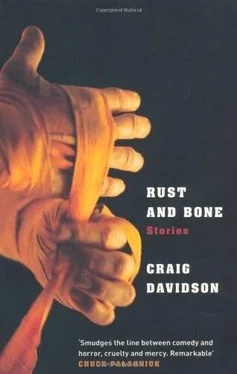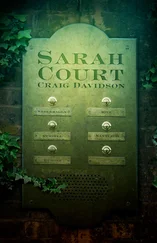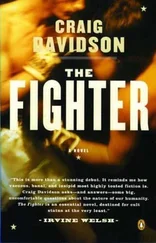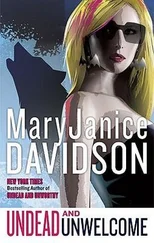Niska swims slowly past. My leg hangs from her jaws, loosely flexed at the knee. Flashbulbs pop in the stands and I think, That’s not what they came to see, but then maybe it is. My wetsuit’s torn to the breastbone, peeled back in flaps to reveal tanned flesh, gym-sculpted abs, clean-shaven groin, my painfully erect cock. Brachial veins running like river systems under the elastic flesh, its size—6 3⁄4 inches: I’d measured, digging the ruler into my crotch for an added quarter-inch— grossly amplified, monstrous and hemorrhaging blood.
The cute trainer’s lips move but no sound comes out. “I’m okay,” I tell her, and smile. “It’s o-o-kay, I’m … fine.” She’s crying, she’s shaking her head. Overhead, a big pale sun burns without heat. I wish everyone would go away and leave me alone, wish I were somewhere dark and quiet and cool. My gaze drawn to a gap between the topmost seats and the amphitheater roof: calm ongoing sky reaching off to the horizon, remotely beautiful, all things in alignment.
Jesus, do something, do something…Paramedics, move, move …
The leg, where’s the fucking leg …
Quit pumping the plasma expander, his blood’s thin as Kool-Aid …
These voices, even in the haze.
FIVE MONTHS LATER I’m in a VW Beetle driving down the QEW. Snow piled along the highway-side and Lake Ontario a frozen white stretch off to the north. I can just make out the slender spike of the CN Tower rising beyond the Toronto harbor. Over the guardrails and down the snow-covered shoreline, two muffled figures sit round a hole drilled through the ice.
I sit in the passenger seat, cheek pressed to the window glass. My right leg rests against the padded doorframe. My left leg is mostly gone: a rude stump two inches below my crotch. The surgeons did a fine job, considering: high-gauge stitches left a ring of baby-pink dimples, a balloon knot of puckered flesh at the stub. I nearly died, or so I’m told. The sacral, varicose, basilic, and femoral arteries merge in the upper thigh, pumping a pint of blood a minute. I lost over a gallon before the medics transfused me. From Niagara Falls, I was airlifted to the Hotel Dieu in St. Catharines, where a team of surgeons operated for two hours. Battleground surgery: a hundred years ago, some meatball medic would’ve jammed a rum-soaked leather thong between my teeth and slathered the stump with boiling tar. Thanks to today’s wonder drugs, I don’t recall a damn thing.
I awoke two days later. The hospital room’s every ledge festooned with flowers in frosted glass vases, plush white teddy bears, balloon bouquets bump-bumping in the AC flow. Condolences: family and friends and co-workers, old high-school acquaintances, ex-girlfriends softened by my pathetic state, a War Amps rep, the morbidly curious. A summer intern conducted a brief interview for the Standard .
“Tell me what happened, in your own words.”
“In my own words? A whale bit my leg off.”
“I see.” Scribbles on a notepad. “Did you see this coming?”
“What?”
“Was there, well, any … hostility … between the two of you?”
“Yes. I was envious of the whale’s career.”
“Is that so?”
“Insanely jealous, yes.”
“Will you be suing?”
“Who—the whale?”
“Is that possible?”
“Get out of here.”
Animal rights protesters held a rally on the hospital’s front lawn. They toted placards bearing slogans: FREE NISKA and CAPTIVITY + MISTREATMENT = MURDER. They had a boombox playing “Freedom Calling” and a huge inflatable whale with shackles over its pectoral fins. My father got into a fistfight with the ringleader, a dreadlocked grad student from the local university. They rolled across the grass throwing punches until a groundskeeper broke them apart. Dad got in one good shot: it landed with the sound of a hatchet halving a cantaloupe, splattering the protester’s nose.
The car is my mother’s. Slender and composed in jeans and a heavy sweater, silvery hair cut short in bob style, she sits ramrod straight with both hands on the wheel. Radio tuned to Light 98.1, Kenny G blowing a soulful sax. I reach over to change the station. She slaps my hand.
“My car, my music.”
“Oh, god,” I say. “Gonna slip into a coma, here.”
“You’ll survive.”
My mother is a palliative care nurse. She passes each shift in a ward strung with shattered, hopeless, bedridden bodies, victims of voracious and uncaring diseases, kids with inoperable egg-sized tumors latched to their brainstems, infants born with horrible genetic defects. As a matter of basic survival she’s developed a professional detachment to the frailties, grotesqueries, and fateful idiosyncrasies affecting the human body. Emotional scar tissue, my father calls it. This brusqueness carries over to her family life. As a child, I dreaded the most minor cut or abrasion: she’d break out the iodine and cotton swabs for an unsympathetic clean and dress, slapping my hands away from the wound as I wailed. When I once complained of mild constipation, she insisted on giving me an enema. I recall leaning over the toilet, hands braced on cold porcelain and pants wadded around ankles, penis flapping between trembling legs as she inserted a greased plastic tube, followed by a spurt of warm, bung-loosening water. The whole experience was seriously … oedipal .
“What do you think about me running across the country, like Terry Fox?”
“You wouldn’t make it to the end of the block. And don’t compare yourself to Terry.”
“Why not? He lost a leg, I lost a leg.”
“Terry Fox had cancer.”
“So what, you got to have cancer to do something noble?”
“It’s a start.”
“What if I donated all the money I raised to support the eradication of marine mammals? Fill the oceans with drift nets. Capsize oil supertankers. The Extinction Foundation . Once all the whales are gone we could get to work on the manatees.”
“That’s an awful sentiment, Benjamin. Just … awful .”
The highway cuts sharply west, spanning a narrow inlet splitting into a spider’s web of iced-over streams. Back in high school, me and my friends took a rutted track to the mouth of the inlet, searching for chinook salmon that’d swim up the swollen tributaries to spawn. The spring runoff slackened and the streambeds dried up, leaving thousands stranded in shallow pools. They swam in restless, agitated circles, throwing themselves at the slippery mud banks. We’d tie triple-barbed hooks to our lines and jig them through the water. With a quick jerk, we’d snag a fin or a gill flap, a belly, a tail. The salmon were so plentiful it required no real skill at all. We hauled them thrashing to the shore and checked the sex; we squeezed the females’ guts, emptying their eggs—orange globes in thick, briny liquor—into a gallon ice cream tub, for sale to a local bait shop.
One time my friend Joe hung a big female on a rotted fencepost; the fish had bent his last hook out of shape, and Joe held the thing’s stubborn will to live against it. A few minutes later the fish was still bucking and thrashing. Joe picked up a stream-polished stone and chucked it. The stone struck with a heavy wet thud. The rest of us found rocks and hurled them. We hit the salmon’s head and gut and fins, missing often, rocks sailing into the brush or bouncing off the post with a hollow wok! All of us laughing: the horsey, trollish laughter of teenage boys. Stones smacked the salmon’s ugly sloped head, smashed its hooked jaw and gouged luminous flesh to reveal the stark contour of its skull. A shard of flint cut its belly and the pressure of our assault forced the pink of its gut through the slit. The post slick with blood and burst roe and incandescent scales winking in the pale spring sunlight. We became bored and returned to our rods. The fish continued to flop and flap, not quite alive, not entirely dead.
Читать дальше












